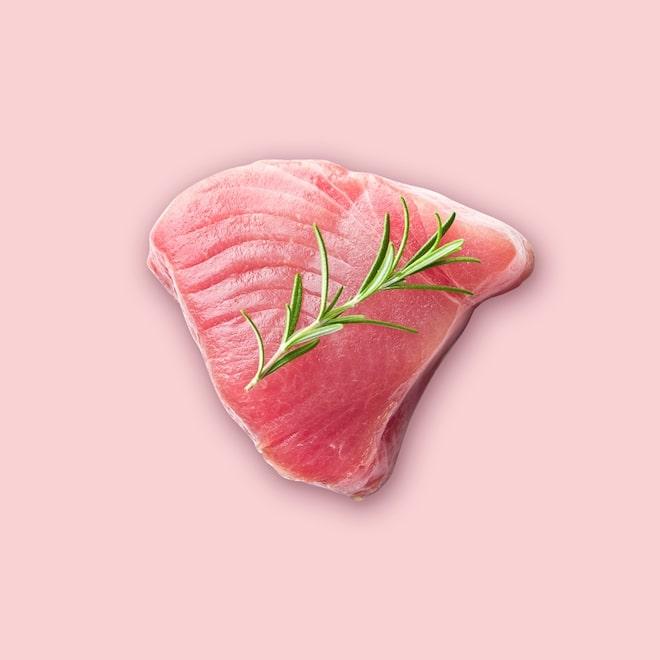Tuna




Tuna is a fatty, saltwater fish loaded with protein, vitamins, minerals and omega 3’s. There are numerous species of tuna, the most commercially popular including albacore, bigeye, blackfin, bluefin, skipjack, tongol, and yellowfin. Tuna is a versatile protein, depending on the quality, you can enjoy it fresh, sear it, or eat it from the can!
It’s best to purchase fresh tuna from a store you trust to have a frequent supply of fresh fish. Become friends with your local fishmonger!
Avoid buying tuna that has dry or brown spots. Smell is also a tell tale sign of the freshness of the fish. If you can, go for the displayed fish instead of prepackaged, so you can give it the smell test.
Store your fresh fish in the refrigerator for about two days, top with ice and swap it once or twice a day to optimize freshness.
When storing a whole tuna make sure it is totally covered in ice. Tuna fillets and steaks on the other hand, should be placed on top of ice to maintain the best quality.
Canned tuna may be purchased either solid or in chunks, and is packaged in oil, broth or water. With oil, you will have the moistest tuna, however with that comes the highest fat content.
Broil Tuna by placing a stainless steel pan under a preheated broiler for 10 minutes. Season and lightly oil the fish. When the pan is very hot, add the fish. Return to the broiler and cook for 3-5 minutes depending on the thickness.
Tired of normal tuna sandwiches? Throw some avocado in there! Mash it up and mix it in with tuna salad.
For a carb free alternative to a tuna melt, try hollowing out a zucchini or bell pepper, stuffing it with tuna salad, topping it with cheese and throwing it in the oven for a couple minutes.
Tuna is an excellent source of protein; it helps you stay full and gives your body the energy for busy days.
Tuna is also a good source of iron, niacin, vitamin B-12, vitamin D, vitamin A (you need this for healthy teeth, skin and bones) and polyunsaturated fatty acids, such as omega 3s (your heart loves those omega 3s).
Canned tuna has varying levels of naturally occurring mercury, therefore pregnant women and children should limit their consumption because mercury provides a proportionally bigger dose to fetuses and children than to adults.
Researchers have also recently discovered a trend between tuna consumption and decreased risk of the cardiovascular problem atrial fibrillation (AF).
Corrections or improvements? Email us at
content@sidechef.com